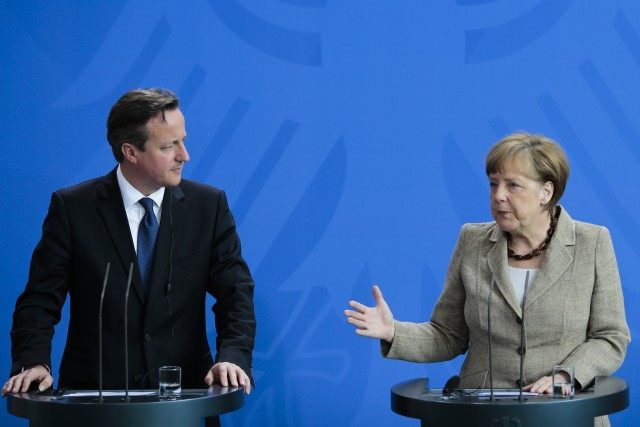Britain receives less than half the money it puts into the EU back as subsidies thanks to the ongoing Eurozone crisis, a new report has found. The report also found that British households could be as much as £933 a year better off if Britain left the EU.
The think tank which compiled the report advised that staying within the EU poses “serious risks”.
The comprehensive new report from Business for Britain, runs to a mammoth 1,032 pages, has found that, between 1976 and 2003 the average return from Britain’s financial input into the EU was 68 per cent, meaning that, for every £1 British taxpayers paid into the European project, just 68 pence was returned in grants and subsidies.
That figure alone is enough to demonstrate that membership of the EU can only ever be justified on ideological, not economic grounds. But since the Eurozone crisis which began in 2008, the figure has dramatically worsened to the point that just 49 pence in each pound are now returned to British coffers, less than half of what is paid in.
The report titled ‘Change or Go’, which has been serialised, notes that if Britain stopped paying into the EU, it is not just the direct payments which would be saved: “Without paying into the central EU Budget, the UK would make administrative savings by removing an extra tier of administration, add new options for efficiency savings, and could identify projects where it saw greater investment return.”
But direct payments from the government are not the only form of payments into the EU. Previous research by Business for Britain has already revealed how Brits pay more into the EU than citizens of other member states through VAT payments.
Author Tim Philpott said: “Over the seven years from 2007-13, the UK paid over £15.4 billion in VAT contributions to the EU, an average of £2.2 billion a year. This amounts to just under 18 per cent of the EU’s annual VAT revenue, despite the UK population being only 13 per cent of the EU whole.
“The VAT contribution per capita in the UK is £246 in total in 2007-13. This is £78 more than the average for the EU population. [Moreover,] the Office for Budget Responsibility has forecast that the UK’s VAT contributions to the EU budget will rise by 32 per cent from 2013-14 to 2019-20.”
But the authors of Change or Go highlight that membership of the EU has never been about the economics. “The EU’s overriding objective has always been political,” they say. “Commentators who discuss the EU in exclusively economic terms miss the point that economic considerations have always taken second place. The Eurozone was not an ‘optimal currency area’ when the euro was launched, and it is even less optimal today.
“Indeed, not only are EU member economies diverging but the euro is causing this divergence to increase. The Eurozone is separating into ‘Euromark’ and ‘Eurodrachma’ groups. This is not a short-lived consequence of the 2008 financial crisis but a fundamental structural flaw. Even within the Eurozone there already exists a ‘two tier Europe’, and the EU’s own institutions are strengthening this division.”
According to the Sunday Express, Business for Britain’s chief executive Matthew Elliott has commented: “Britain would be better placed to attract investment and cut harmful regulations if it had a looser relationship with the EU, and it would also be better protected from a eurozone that will either fully integrate or disintegrate.
“Britain is in a win-win situation – a scenario which boosts the chances of securing the ‘fundamental change’ in Britain’s EU relationship that would deliver the looser, trade based relationship with the EU which business wants.”
Follow Donna Rachel Edmunds on Twitter: Follow @Donna_R_E or e-mail to: dedmunds@breitbart.com

COMMENTS
Please let us know if you're having issues with commenting.